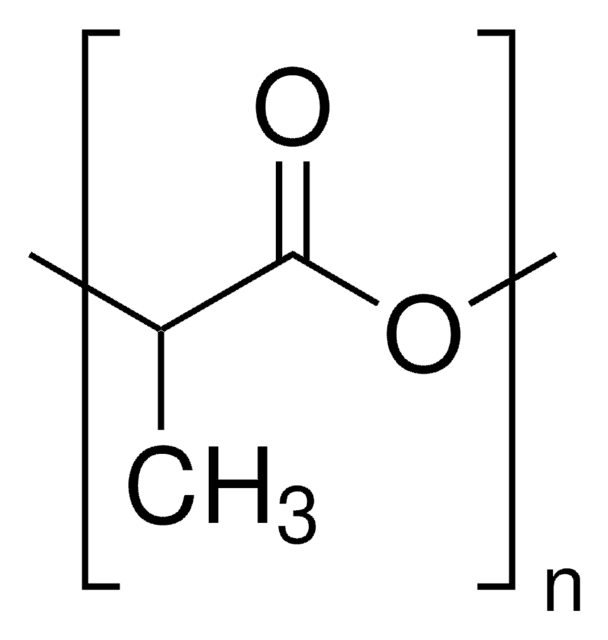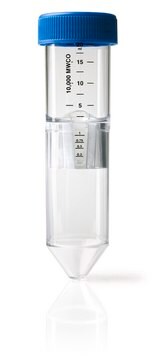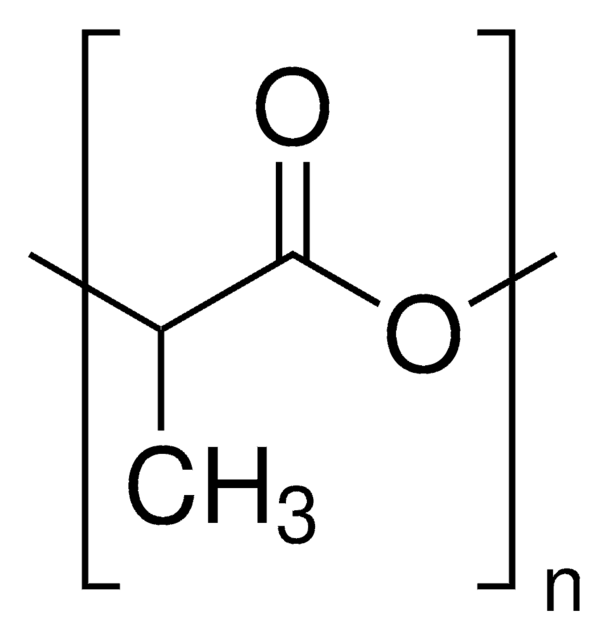764612
Poly(D,L-lactide)
average Mn 5,000, PDI ≤1.1
Sinónimos:
PDLA, PLA, polyDL-lactide
About This Item
Productos recomendados
form
solid
Quality Level
mol wt
average Mn 5,000
degradation timeframe
<6 months
mp
264-270 °C
PDI
≤1.1
storage temp.
2-8°C
¿Está buscando productos similares? Visita Guía de comparación de productos
Application
Storage Class
11 - Combustible Solids
wgk_germany
WGK 3
flash_point_f
Not applicable
flash_point_c
Not applicable
Elija entre una de las versiones más recientes:
¿Ya tiene este producto?
Encuentre la documentación para los productos que ha comprado recientemente en la Biblioteca de documentos.
Los clientes también vieron
Artículos
Local delivery of bioactive molecules using an implantable device can decrease the amount of drug dose required as well as non-target site toxicities compared to oral or systemic drug administration.
The world of commercial biomaterials has stagnated over the past 30 years as few materials have successfully transitioned from the bench to clinical use. Synthetic aliphatic polyesters have continued to dominate the field of resorbable biomaterials due to their long history and track record of approval with the U.S. Food and Drug Administration (FDA).
Microparticle drug delivery systems have been extensively researched and applied to a wide variety of pharmaceutical and medical applications due to a number of advantages including injectability, local applicability to target tissues and sites, and controlled drug delivery over a given time period.
Aliphatic polyesters such as polylactide, poly(lactide-co-glycolide) and polycaprolactone, as well as their copolymers, represent a diverse family of synthetic biodegradable polymers that have been widely explored for medical uses and are commercially available.
Nuestro equipo de científicos tiene experiencia en todas las áreas de investigación: Ciencias de la vida, Ciencia de los materiales, Síntesis química, Cromatografía, Analítica y muchas otras.
Póngase en contacto con el Servicio técnico







